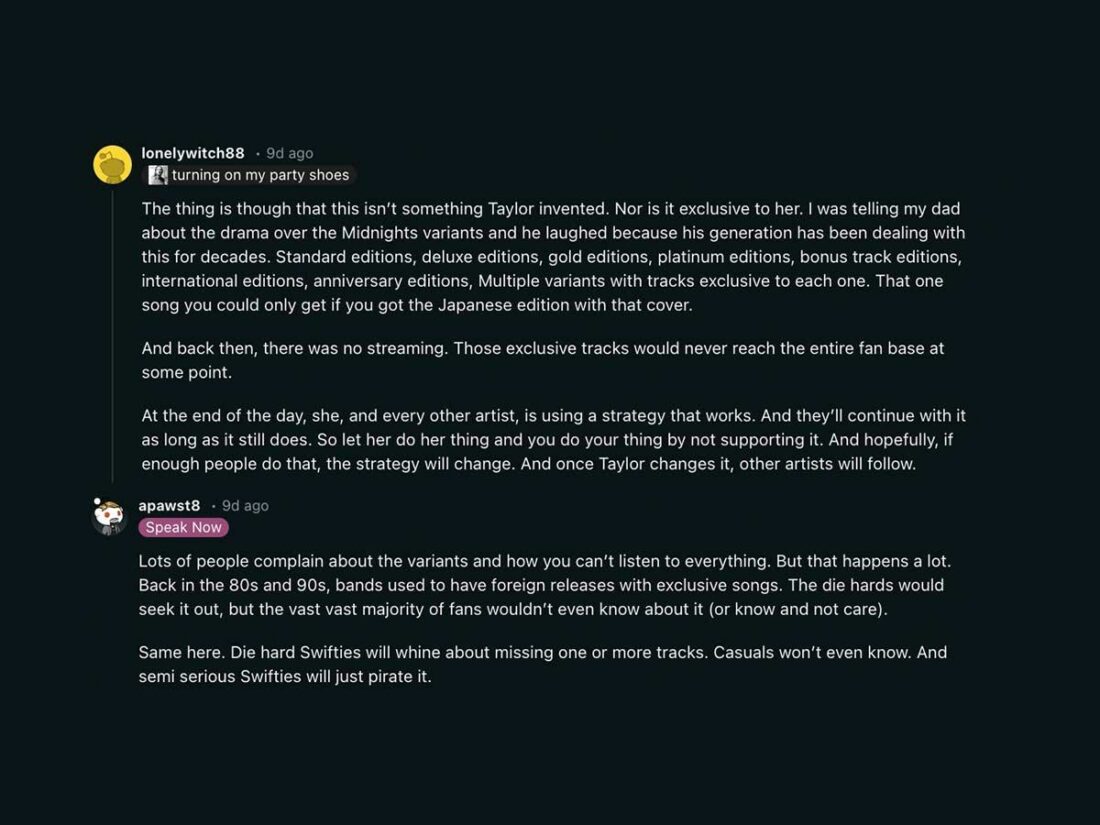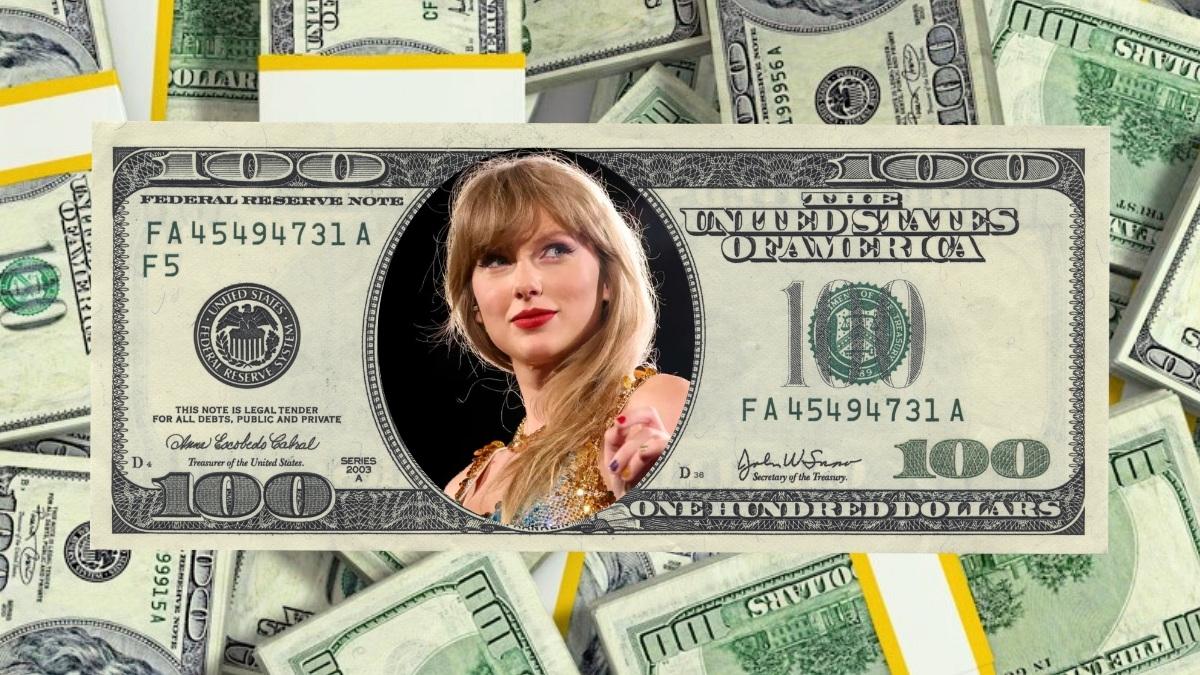One of her fans has written a 2000-word post about this.
Taylor Swift has turned the tide in her favor in the streaming era, according to a detailed analysis shared by a fan on Reddit, ‘honoraryweasley’. The discussion explores Swift’s strategic approach to “windowing” and exclusivity to earn more despite the low artist payouts on platforms like Spotify. Unfortunately, according to the user, this strategy comes at a high cost for her fans.
Swift’s Windowing vs Spotify
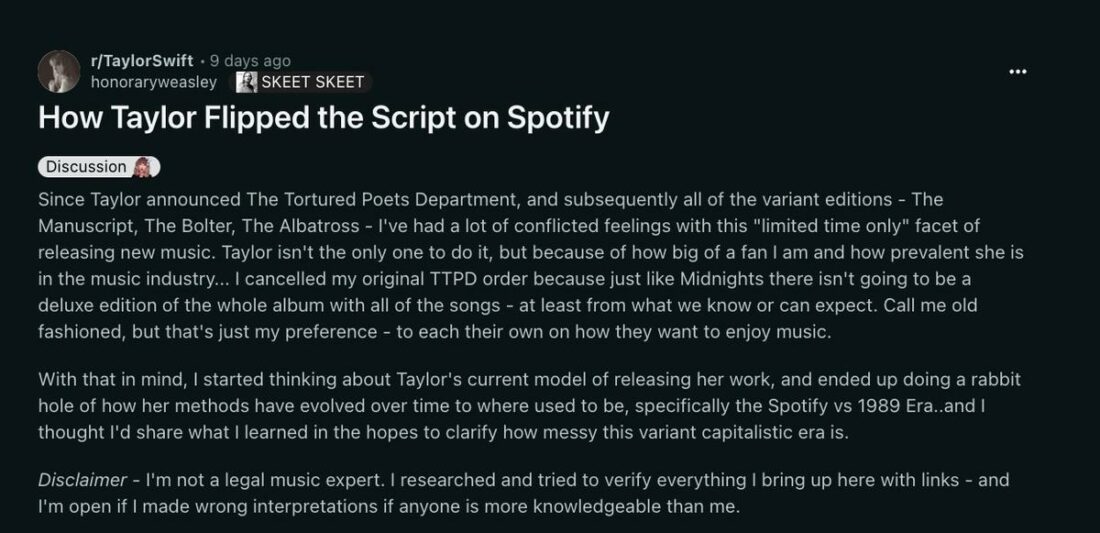
The Reddit post started with a quick look back on Taylor Swift’s past standoff with Spotify in 2014.
This standoff is centered around Swift wanting to implement ‘windowing’ in releasing her 1989 album.
According to the OP, windowing is a method of releasing a new work only on a paid service for some time before it becomes available on other platforms.
“Think of it in terms of movies. We paid to see the Eras Tour Movie in the theaters for X Amount of Time. While it was slowly leaving theaters, it dropped to renting at home for a month or two. Now, it’s going to be on Disney+ starting in March.” she explains.
“The movie went from a paid outlet to paid outlet to being available “for free”. That’s the window effect.”
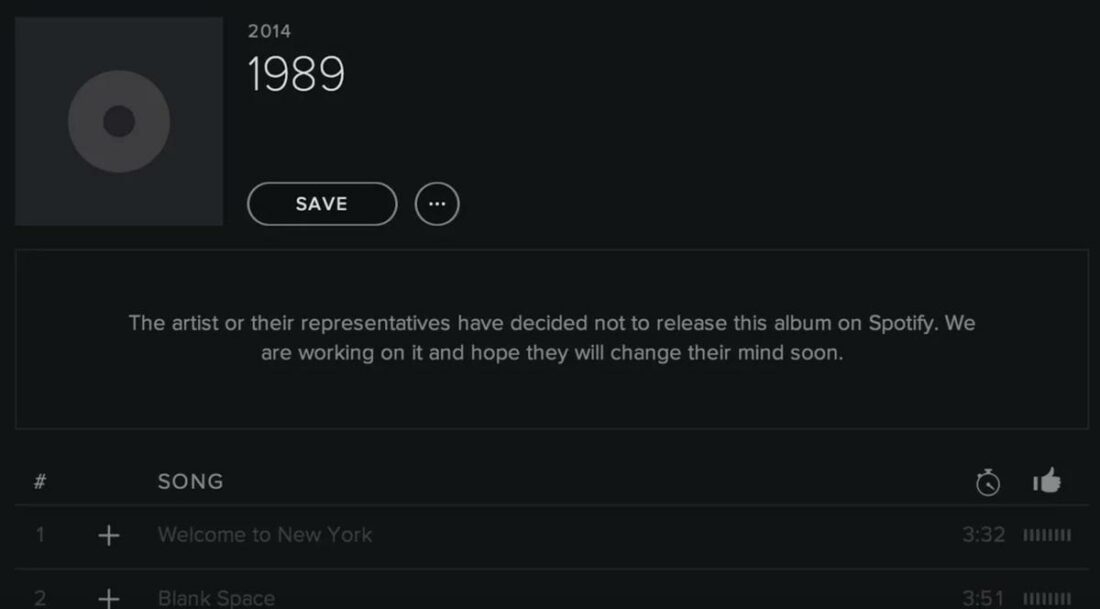
In terms of the 1989 album, Swift’s team wanted to only release the album to Spotify’s paid subscribers, seeking higher royalty payments. Their stance is that streams from Spotify’s paid subscribers pay more than those from the free tier. So, they want to utilize the higher payout first for a ‘fair compensation’.
However, Spotify’s refusal led Swift to remove her entire catalog from the platform.
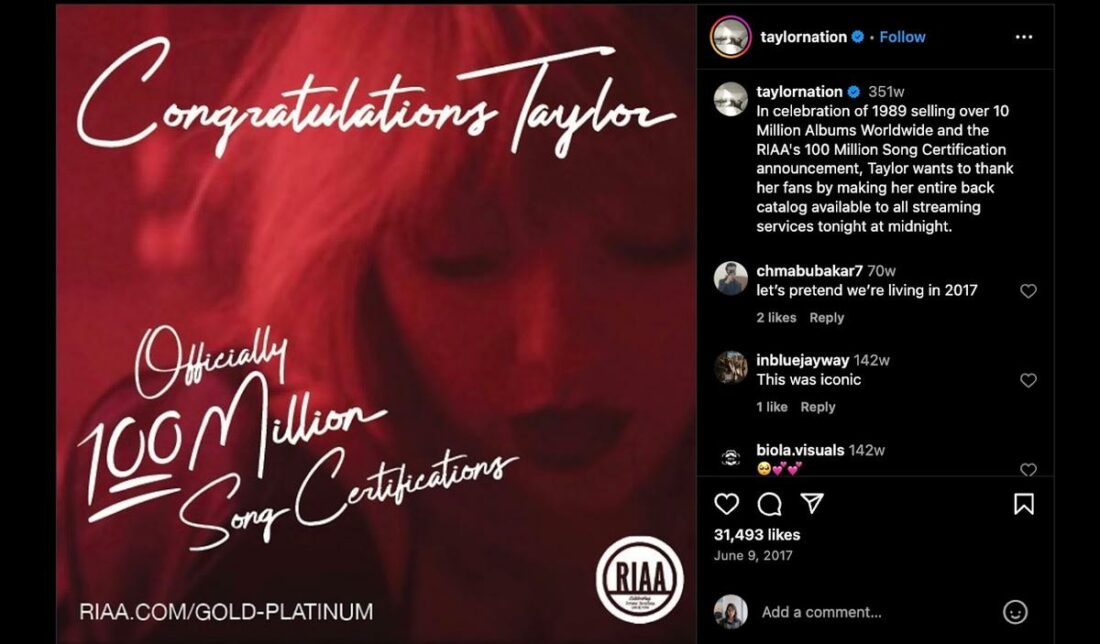
After three years of Spotify boycott, however, Swift returned to the platform in 2017. She didn’t release any statements about why, but insiders have claimed that it’s because she recognized the power streaming has over the future of music consumption.
But, Spotify’s payouts still didn’t change. So, Swift has instead implemented different strategies to earn more despite it.
The Variant Era
According to the OP, Swift has combined both windowing and exclusives in her strategies. This gave birth to what the OP calls, “the variant era.”
The OP detailed Swift’s use of variants over the years.
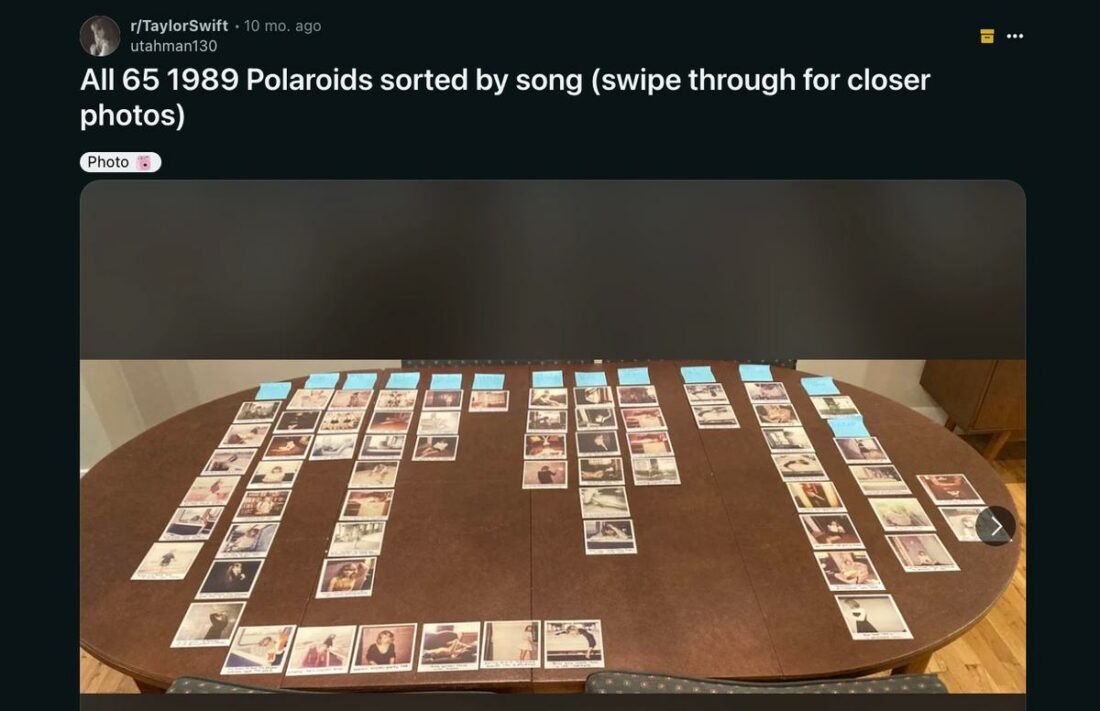
Starting with “1989,” Swift included 65 collectible Polaroids, which users can get and collect by buying her physical albums. “Reputation” also came with different magazines, and “Lover” was packaged with various journals and posters, all without offering deluxe versions.
For “Evermore,” bonus tracks were initially exclusive to physical formats, and only became available for streaming a month later.
All these, according to the OP were acceptable since they only involved optional.
“But one could say the variants era has become beyond excessive. For this overall and easiest example, I’ll use Midnights.” says the OP.
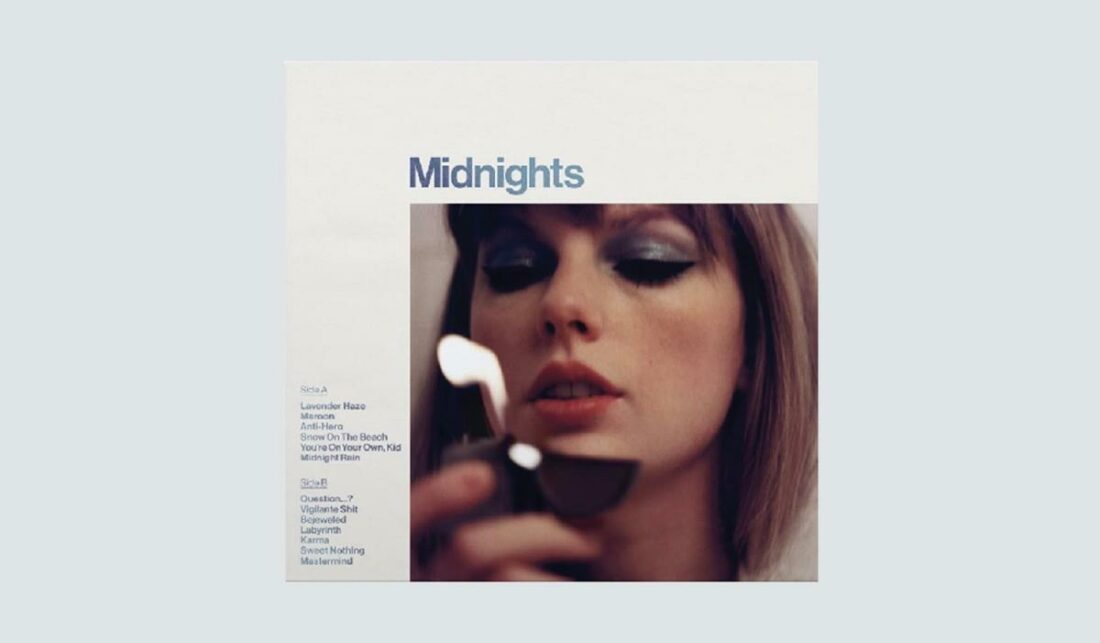
The OP then continued to detail Swift’s “excessive” strategy of windowing for the Midnights album over the past few months. Here, she tells how Swift has released various versions, limited editions, and exclusives on different platforms at a time to maximize the revenue for each before releasing them on others.
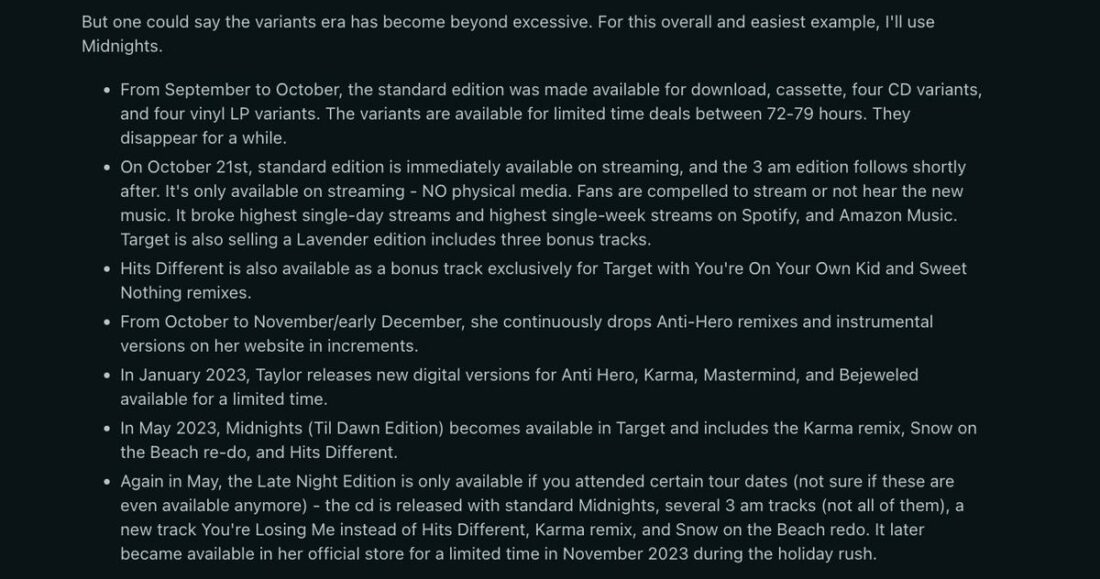
The Impact on Fans
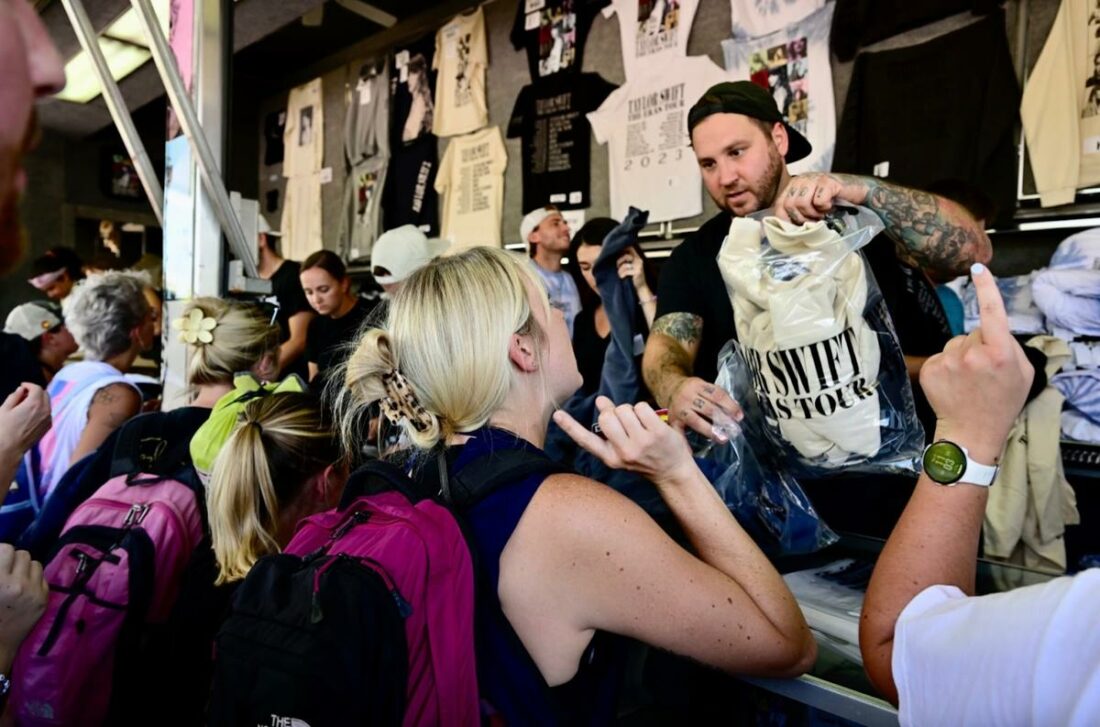
The OP didn’t stop with the recap of what Swift has done so far. She also discussed how the artist’s strategies have impacted her and other fans.
According to her, by introducing various physical formats like CDs and vinyl for limited times, Swift ensures fans spend more to collect every unique edition. This strategy might leave some fans waiting or searching through resellers for missed versions.
The OP also explains that Swift’s strategy around streaming releases also plays into fans’ fear of missing out. She starts with standard versions on streaming platforms, then strategically releases additional tracks over time. This keeps fans engaged, revisiting the album for each new drop and boosting her streaming numbers all year.
“Taylor also determines what’s available on streaming. From the onset, she at least makes the standard versions available, and she gets paid non-stop because this also acts as FOMO for stans.” she shares.
“Fans clamor for the missing tracks, and Taylor windows those out between cds here and there, and then surprise releases single tracks after fans want them most. This causes the fans to restream the entire work to see how all the pieces fit, thus streaming the whole album from end to end every time something new drops.”
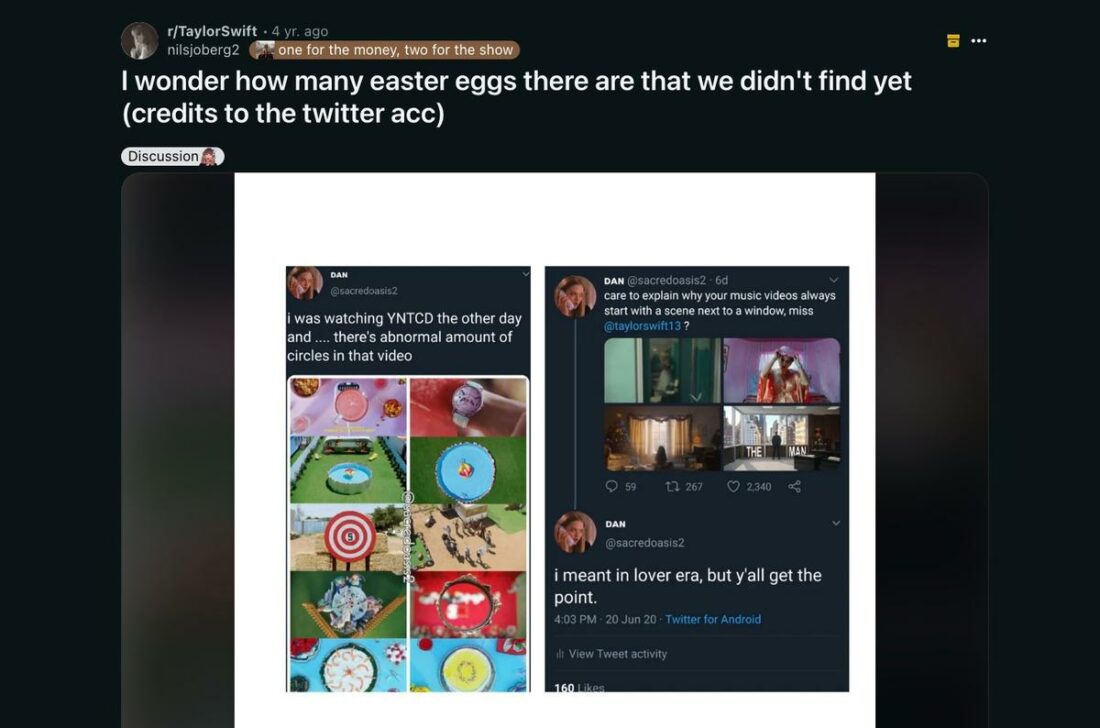
She also pointed out that Swift’s marketing has evolved too, focusing more on social media and less on traditional media. Here, she mentioned that Swift also utilized ‘easter eggs’ to keep fans engaged and boost the streams on her music videos and the different versions of her songs. All these contribute to a higher number of Swift’s music consumption.
The Community Reaction
Honoraryweasley’s analysis has sparked a lively debate among Swift’s fans. This debate touches on several critical issues: the impact of consumer choices, artist compensation, and how we engage with music in the digital era.
Some fans, argue that Swift’s approach only favors those who can afford to buy multiple versions of her albums. These comments raise concerns about fairness and access. They suggest that this strategy might limit enjoyment of Swift’s music to only those with disposable income.
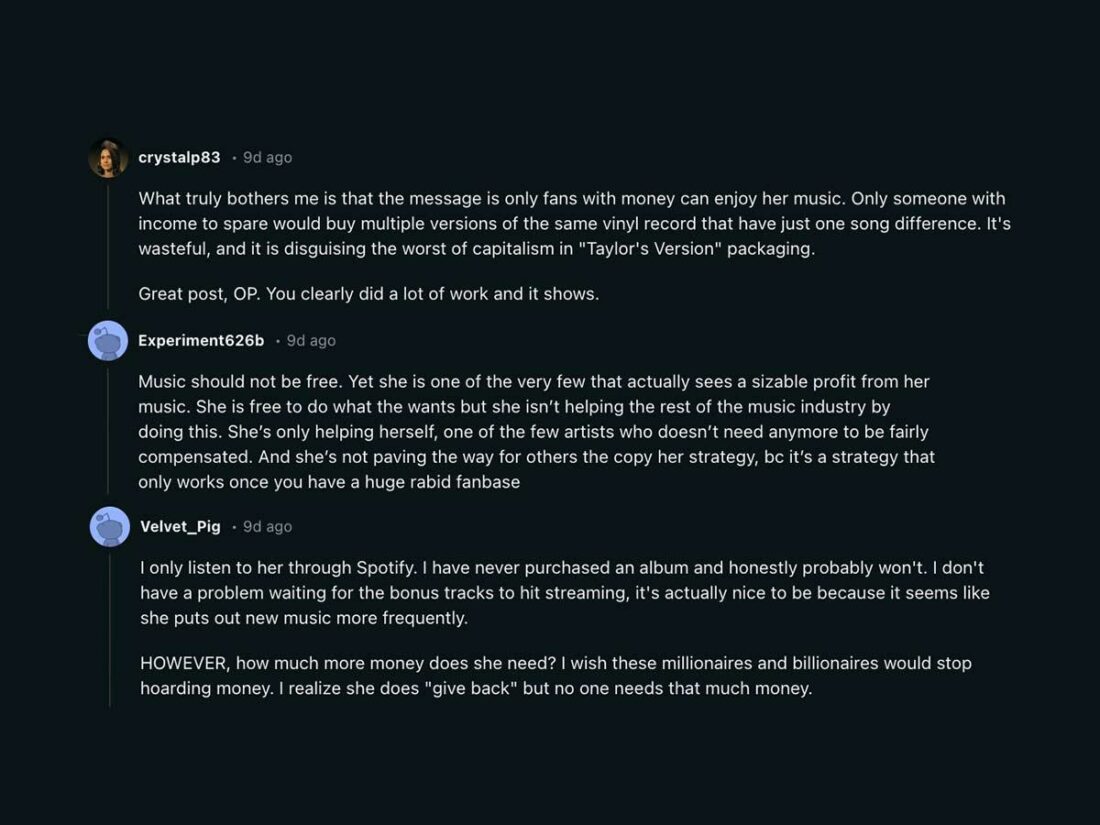
In contrast, other fans emphasize the power of consumer choice. They argue that if fans collectively chose not to engage with expensive merchandise or exclusive releases, artists like Swift would be compelled to change their strategies.
Some fans have also pointed out that the variants strategy has hurt their way of supporting Swift. Many of them admitted that they have stopped buying some of her albums as they find it harder and ‘exhausting’ to keep up with the releases.
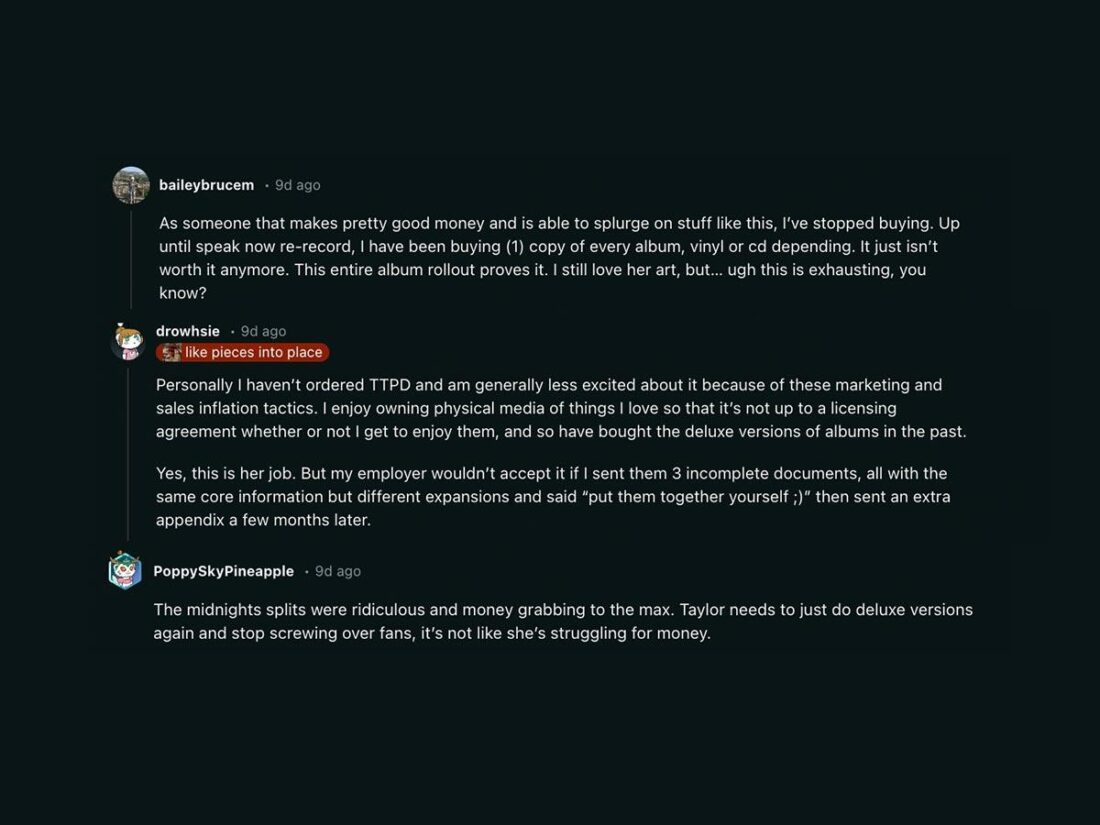
“For somebody that is all about owning her own music she’s certainly making it difficult for her fans to do that.” says another user.
However, supporters of Swift’s approach point out that exclusive releases and special editions are not new to the music industry. They argue that Swift is simply adapting a long-standing practice to the current digital context, ensuring that her music eventually reaches a broad audience through streaming platforms.
